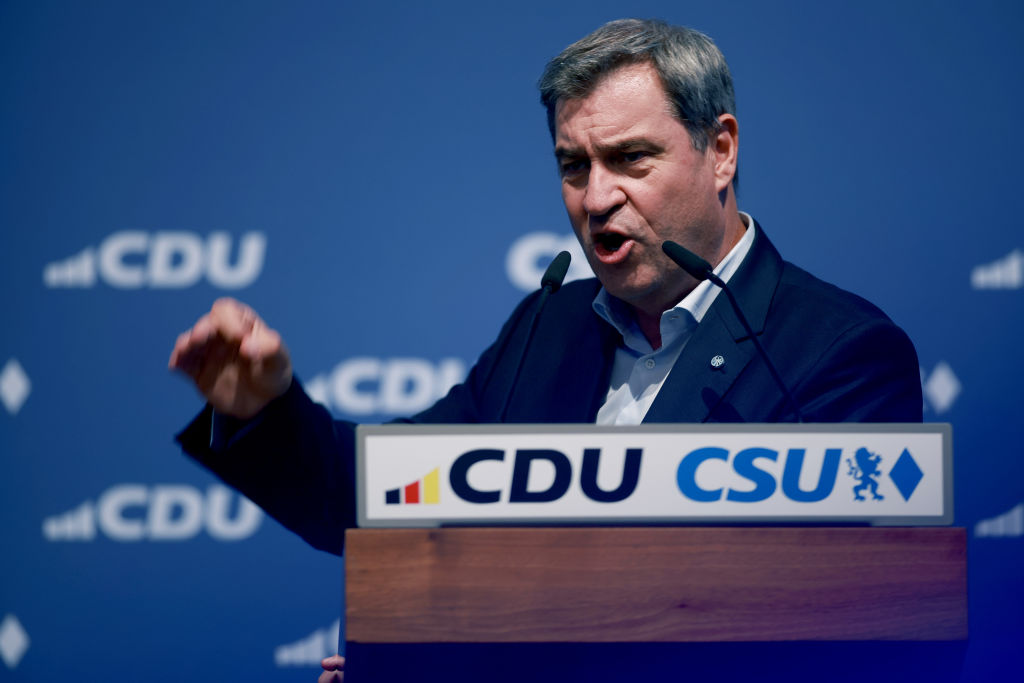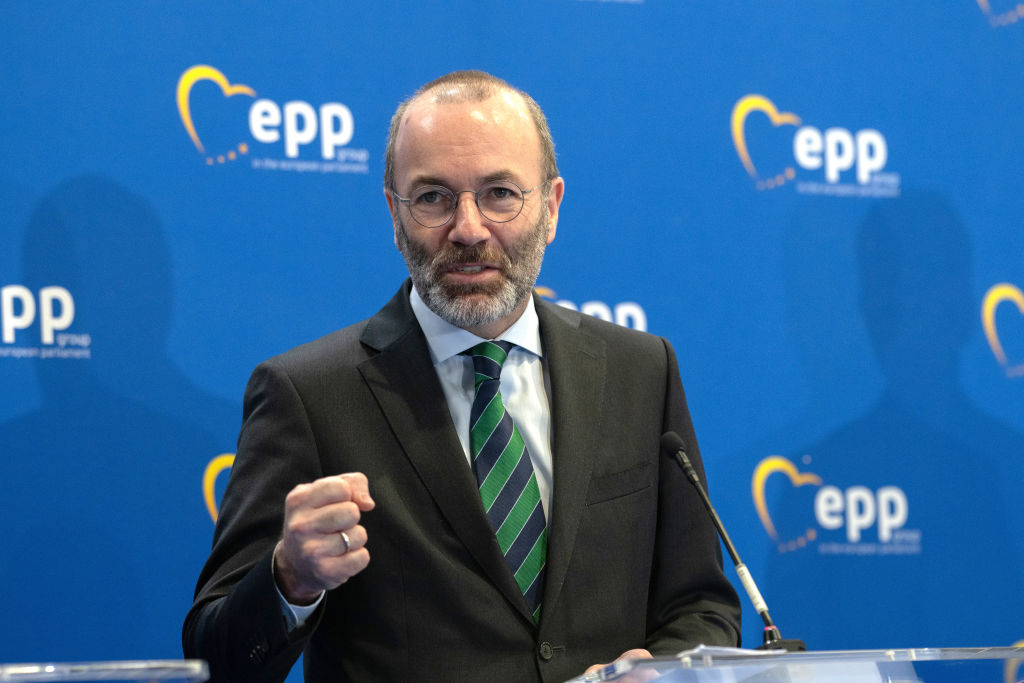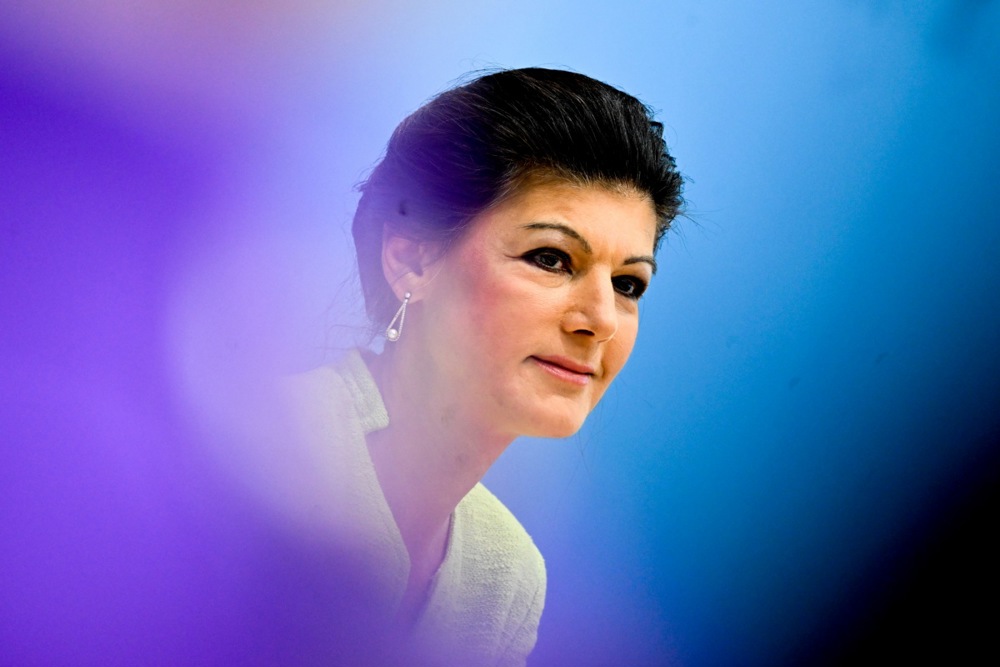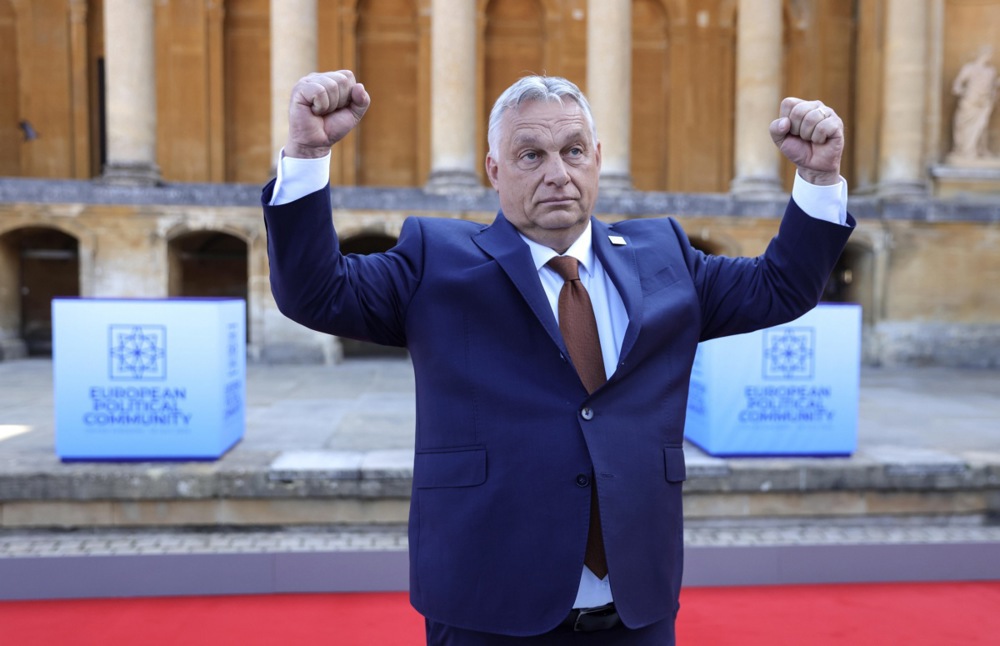German political parties are said to be open to co-operating with the hard-left party of Sahra Wagenknecht in regional government coalitions, but she has made it clear she would only do so if there was a shift towards pushing for peace in Ukraine.
Bündnis Sahra Wagenknecht (BSW) is set to be a main contender in the upcoming state elections in Eastern Germany and can hope to be part of future governments, as other parties vow not to work with Alternative for Germany (AfD).
But Wagenknecht said any such future alliances hinged on standpoints regarding the Ukraine conflict.
“We will only participate in a State government that also takes a clear position in favour of diplomacy and against war preparations at the federal level,” the chairwoman of the BSW said.
That was because it was clear “that a new arms race will devour billions, which are urgently needed for schools, hospitals, apartments and higher pensions”, Wagenknecht added.
“The question of peace is very important. Many people are rightly concerned because the German Government is increasingly making our country a party to the war in Ukraine and has so far failed to make any efforts to find diplomatic solutions.”
Centre-left Socialists oppose Wagenknecht’s view. Thuringia’s Social Democratic Party (SPD) chairman and interior minister Georg Maier has accused Wagenknecht of “blackmail”.
“No foreign policy is made in State governments,” he told the RedaktionsNetzwerk Germany (RND). “The topic is a diversionary tactic for missing state issues. Apart from headlines, there is nothing behind it.
“No serious party in the federal government will allow itself to be blackmailed by Sahra Wagenknecht into ending support for a democratic country that has been brutally invaded by Russia,” he said.
“But she is not concerned with the matter and certainly not with Thuringia, but as always with herself.”
Christian Democratic Union (CDU) foreign policy expert Roderich Kiesewetter called on his party not to co-operate with the BSW in the States either, due to Wagenknecht’s coalition conditions.
“Ms Wagenknecht is making it clear that the BSW aims to turn Russian interests into German policy,” he said.
“One of these Russian interests is to undermine the free democratic basic order and to divide, reduce and thus render irrelevant democratic parties such as the CDU,” Kiesewetter told RND.
“For us as the CDU, it must be clear that co-operation at any level with this Kremlin offshoot is unthinkable.”
He added that BSW contradicted all values “the CDU has embodied since Adenauer with its ties to the West and its clear position on peace in freedom and democracy”.
“It is the task of the State-supporting parties to recognise this strategy of BSW and AfD, to clarify it clearly and to give the citizens in the States orientation through a clear stance.”
There will be regional State elections in Saxony, Thuringia, and Brandenburg in September. Both the hard-left BSW and the hard-right AfD are set to do well in these three ballots.
BSW is polling between 15 and 20 per cent, the AfD is leading the polls and scores between 25 and 35 per cent, which would make it the biggest party.
Both BSW and the AfD have socio-economic, more left-leaning programmes and both parties are against the current German policy regarding Ukraine, which they have said only further facilitated the war. Instead, they claimed, they promote peace.
The two parties are against arms deliveries to Ukraine and in favour of immediate negotiations between Ukraine and Russia.
In the Eastern part of Germany, a large majority of people fear that their country could be drawn into a military conflict, surveys have shown. Many are also against the policies of the US.
Critics have said that without Western support, there could be no peace in Ukraine, only a Russian victory that would lead to more Moscow-backed aggression.





